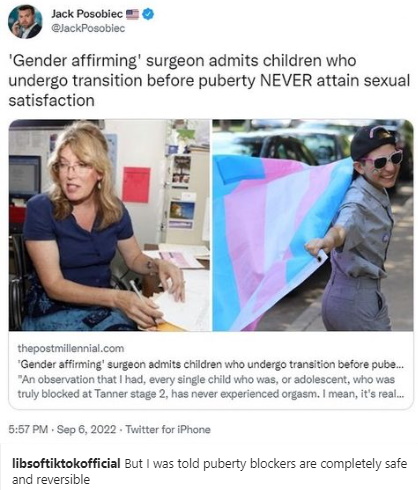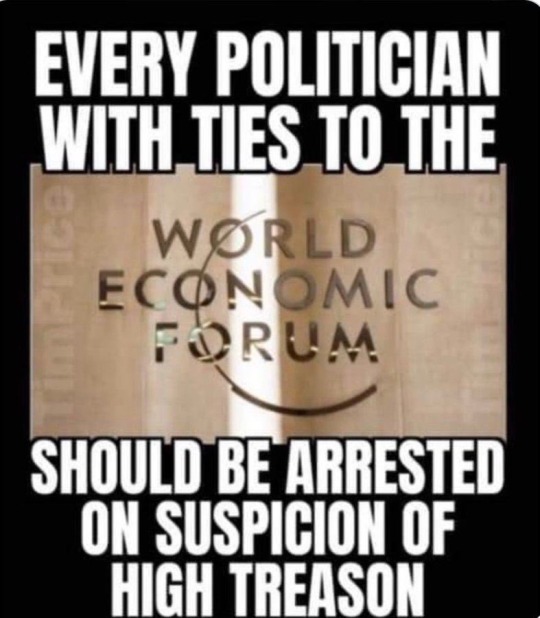Ninety miles from the South Eastern tip of the United States, Liberty has no stead. In order for Liberty to exist and thrive, Tyranny must be identified, recognized, confronted and extinguished.
infinite scrolling
Friday, September 9, 2022
The 90 Miles Mystery Video: Nyctophilia Edition #1136
Before You Click On The "Read More" Link,
Please Only Do So If You Are Over 21 Years Old.
If You are Easily Upset, Triggered Or Offended, This Is Not The Place For You.
Please Leave Silently Into The Night......
The 90 Miles Mystery Box: Episode #1836
You have come across a mystery box. But what is inside?
It could be literally anything from the serene to the horrific,
from the beautiful to the repugnant,
from the mysterious to the familiar.
If you decide to open it, you could be disappointed,
you could be inspired, you could be appalled.
This is not for the faint of heart or the easily offended.
You have been warned.
Thursday, September 8, 2022
A Microsoft Fellowship Caps the Number of White and Asian Applicants. Lawyers Say That’s Illegal.
It’s not just Google. Microsoft is capping the number of white and Asian students that universities can nominate for a prestigious research fellowship that includes a generous $42,000 stipend, part of a pattern of discriminatory policies sweeping corporate America.
The Microsoft Research Ph.D. Fellowship allows participating universities to nominate up to four students annually. "At least two" of those four nominees, per Microsoft’s provisions, should "self-identify as a woman, African American, Black, Hispanic, Latinx, Native American, Alaska Native, Native Hawaiian, Pacific Islander, Indigenous Peoples, LGBTQI+, active or veteran service member, and/or person with a disability."
It is illegal for companies to enter into contracts based on race under the Civil Rights Act of 1866, and Title VI of the 1964 Civil Rights Act prohibits federally funded universities from discriminating based on race. The Microsoft fellowship likely violates both laws, according to Gail Heriot, a member of the U.S. Commission on Civil Rights and a law professor at the University of San Diego.
A Microsoft spokesman, Rhoades Clark, declined to comment, telling the Washington Free Beacon that Microsoft "has nothing to share."
Until recently, IBM’s Ph.D. Fellowship Rewards Program used similar criteria. That program, which also allows four applicants per school, required that half of each university’s nominations go to "diversity candidates or underrepresented populations in technology."
But 24 hours after the Free Beacon contacted IBM for comment, the company scrubbed the quota-like language from its website, which now stipulates that schools "consider a diverse slate of candidates for the program." IBM did not respond to a request for comment.
The fellowships reflect the race-conscious consensus that has taken hold of Silicon Valley, where ostensible corporate competitors increasingly mimic each other’s policies. Like Microsoft and IBM, Google caps the number of white and Asian men that universities can nominate for a Ph.D. fellowship, using language almost identical to Microsoft’s. "If a university chooses to nominate more than two students," Google says, "the third and fourth nominees must self-identify as a woman, Black / African descent, Hispanic / Latino / Latinx, Indigenous, and/or a person with a disability."
That criterion has been in place since at least April 2020, according to an archived webpage. It is not clear when Microsoft and IBM adopted their criteria.
Nearly every elite university in the country has nominated students for one of the fellowships and some, like Columbia University and the Massachusetts Institute of Technology, have nominated students for all three. Though universities are unlikely to lose federal funding over the fellowships, they could face lawsuits or civil rights investigations.
So could the companies themselves. Since the programs are not unconditional grants—fellows must remain in their Ph.D. program for the duration of the fellowships—courts would probably treat them as contracts, said Dan Morenoff, the executive director of the American Civil Rights Project. That would expose Microsoft, Google, and IBM to liability under the 1866 Civil Rights Act, the law banning race discrimination in contracting.
Other tech companies are already facing such lawsuits. In July, a white woman filed a class action complaint against Amazon over a program that gives "Black, Latinx, and Native American entrepreneurs" $10,000 dollar stipends to launch delivery startups. The program violates the 1866 Civil Rights Act, the lawsuit...
The Microsoft Research Ph.D. Fellowship allows participating universities to nominate up to four students annually. "At least two" of those four nominees, per Microsoft’s provisions, should "self-identify as a woman, African American, Black, Hispanic, Latinx, Native American, Alaska Native, Native Hawaiian, Pacific Islander, Indigenous Peoples, LGBTQI+, active or veteran service member, and/or person with a disability."
It is illegal for companies to enter into contracts based on race under the Civil Rights Act of 1866, and Title VI of the 1964 Civil Rights Act prohibits federally funded universities from discriminating based on race. The Microsoft fellowship likely violates both laws, according to Gail Heriot, a member of the U.S. Commission on Civil Rights and a law professor at the University of San Diego.
A Microsoft spokesman, Rhoades Clark, declined to comment, telling the Washington Free Beacon that Microsoft "has nothing to share."
Until recently, IBM’s Ph.D. Fellowship Rewards Program used similar criteria. That program, which also allows four applicants per school, required that half of each university’s nominations go to "diversity candidates or underrepresented populations in technology."
But 24 hours after the Free Beacon contacted IBM for comment, the company scrubbed the quota-like language from its website, which now stipulates that schools "consider a diverse slate of candidates for the program." IBM did not respond to a request for comment.
The fellowships reflect the race-conscious consensus that has taken hold of Silicon Valley, where ostensible corporate competitors increasingly mimic each other’s policies. Like Microsoft and IBM, Google caps the number of white and Asian men that universities can nominate for a Ph.D. fellowship, using language almost identical to Microsoft’s. "If a university chooses to nominate more than two students," Google says, "the third and fourth nominees must self-identify as a woman, Black / African descent, Hispanic / Latino / Latinx, Indigenous, and/or a person with a disability."
That criterion has been in place since at least April 2020, according to an archived webpage. It is not clear when Microsoft and IBM adopted their criteria.
Nearly every elite university in the country has nominated students for one of the fellowships and some, like Columbia University and the Massachusetts Institute of Technology, have nominated students for all three. Though universities are unlikely to lose federal funding over the fellowships, they could face lawsuits or civil rights investigations.
So could the companies themselves. Since the programs are not unconditional grants—fellows must remain in their Ph.D. program for the duration of the fellowships—courts would probably treat them as contracts, said Dan Morenoff, the executive director of the American Civil Rights Project. That would expose Microsoft, Google, and IBM to liability under the 1866 Civil Rights Act, the law banning race discrimination in contracting.
Other tech companies are already facing such lawsuits. In July, a white woman filed a class action complaint against Amazon over a program that gives "Black, Latinx, and Native American entrepreneurs" $10,000 dollar stipends to launch delivery startups. The program violates the 1866 Civil Rights Act, the lawsuit...
Former FBI boss warns prosecutor might see Trump search warrant tossed out entirely
Former FBI boss Kevin Brock says that a prosecutor may throw out the Trump search warrant entirely.
The FBI warrant to search former President Trump's home in Mar-a-Lago may be thrown out entirely in court, according to former FBI boss Kevin Brock.
News broke over Labor Day weekend that Trump had been granted a legal win when a federal judge ordered a special master to review the documents seized from Trump's home.
"I think the government would be concerned as well, because there's concern that the the search warrant itself was overly broad from the get-go," Kevin Brock said on "Just the News, Not Noise" Tuesday evening. "Because the scope that they were looking for was every single document generated during the Trump administration — that just seems too inexcusably overbroad. Now there's indications that they (the FBI) collected much more than they were authorized to collect."
Brock said that he believes that the search warrant could be suppressed entirely.
"If I'm a prosecutor, I am concerned going forward that this search warrant could be suppressed and for those types of reasons, and they would lose access to anything that was collected throughout the search as a fruit of the poisonous tree," Brock continued. "So I think that's got to be in the back of their minds."
Brock also criticized how the FBI raided Trump's home and how usually when the FBI does investigations, they try to take the least intrusive route possible at first.
"You go into a home, you set up a system where those things that you seize are assiduously documented," said Brock, explaining how FBI searches typically work. "They're given a specific tracking number, a barcode and each piece is...
Judge Orders Fauci, Other Top Officials to Produce Records for Big Tech–Government Censorship Lawsuit
Dr. Anthony Fauci, White House press secretary Karine Jean-Pierre, and other top Biden administration officials who were resisting efforts to obtain their communications with Big Tech companies must hand over the records, a federal judge ruled on Sept. 6.
U.S. District Judge Terry Doughty, a Trump appointee, ordered the government to quickly produce documents after it was sued by the attorneys general of Louisiana and Missouri over alleged collusion with Big Tech firms such as Facebook. The initial tranche of discovery, released on Aug. 31, revealed that more than 50 government officials across a dozen agencies were involved in applying pressure to social media companies to censor users.
But some of the officials refused to provide any answers, or answer all questions posed by the plaintiffs. Among them: Fauci, who serves as director of the National Institute of Allergy and Infectious Diseases (NIAID) and chief medical adviser to President Joe Biden.
The government claimed that Fauci should not be required to answer all questions or provide records in his capacity as NIAID director or in his capacity as Biden’s chief medical adviser. It also attempted to withhold records and responses from Jean-Pierre.
In the new ruling on Tuesday breaking the stalemate, Doughty said both Fauci and Jean-Pierre needed to comply with the interrogatories and record requests.
“First, the requested information is obviously very relevant to Plaintiffs’ claims. Dr. Fauci’s communications would be relevant to Plaintiffs’ allegations in reference to alleged suppression of speech relating to the lab-leak theory of COVID-19’s origin, and to alleged suppression of speech about the efficiency of masks and COVID-19 lockdowns. Jean-Pierre’s communications as White House Press Secretary could be relevant to...
Subscribe to:
Comments (Atom)
































